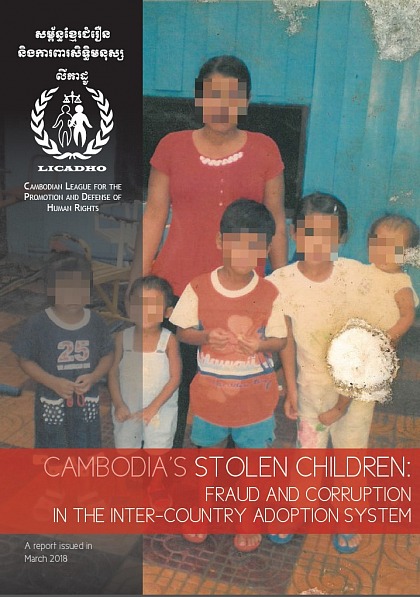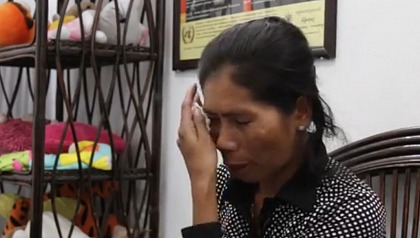Cambodia’s Stolen Children: Fraud and Corruption in the Inter-Country Adoption System
Published on 30 March 2018Thousands of Cambodian children were adopted overseas between the late 1980s and 2009. During that time it emerged that many of the adopted children were not orphans but had parents who placed them in orphanages because of extreme poverty. Their parents placed them there on the understanding that they would return home at a later date. They did not consent to their children's adoption. Instead, orphanage directors, with the help of local authorities, created documents falsely stating that the children were orphans or had been abandoned.
When evidence of this came to light, many countries suspended the adoption of children from Cambodia and in 2009 Cambodia itself suspended them. The parents of the children adopted abroad were often illiterate and lacked awareness of their rights or of where to turn to for help and so were unable to find out what had happened to their children.
In a new report Cambodia’s Stolen Children: Fraud and Corruption in the Inter-Country Adoption System released today, LICADHO describes the cases of several birth mothers who recently approached the organisation seeking help finding their children who had been adopted overseas in the 2000s. The women were all extremely poor and had left their children (aged three to nine) in the care of orphanages. In two cases they did so in order that their children could go to school. In another, the child was very sick and needed constant care which the mother could not provide as she worked in a garment factory. In all the cases the women continued to visit their children regularly for as long as they remained in the orphanages. None of them gave their consent for their children to be adopted.
According to the government's own figures, 3,696 Cambodian children were sent abroad before the 2009 suspension. Given Cambodia’s history of inter-country adoption, it is probable that the cases described in the report are not unusual and that many more families had similar experiences.
“These cases are tragic,” said LICADHO Director Naly Pilorge. “The birth families were cheated, adoptive parents were tricked and the children have been robbed of their true identities. They all deserve to know the truth of what happened, and those responsible for these hideous crimes should be held to account.”
Since the 2009 suspension on international adoptions, LICADHO has found no record of prosecutions for documented offences and little evidence of any serious investigation by Cambodian authorities. Birth families have received no redress and there has been no recognition of their loss or suffering. Nonetheless, the Cambodian government has indicated several times that it plans to lift the ban.
The mothers who have approached LICADHO understand that their children are not coming back. Their strongest desire is to know what happened to them and to hear how they are now. They would like to meet them again if the children want that. LICADHO has attempted to contact relevant authorities inside and outside Cambodia in relation to the children's cases. Progress has been difficult and hampered by the lack of official procedures for addressing historic cases of fraudulent adoption either inside Cambodia or internationally.
“Governments of countries which received children from Cambodia for adoption have as much responsibility as the Cambodian government for righting the wrongs of the past,” said Pilorge. “We know that there are a lot of cases like this and all governments involved must provide a clear way for all parties to seek redress.”
The report calls on the Cambodian government and governments of receiving countries to issue an apology to everyone affected by historic fraudulent adoptions. They should also set up a system of investigation and redress for the Cambodian families of fraudulently adopted children, and establish mechanisms for the adopted children to research their backgrounds and establish contact with their birth families if they wish it.
Finally, the report urges the governments to ensure that no new inter-country adoptions take place until the above systems are in place and fail-safe measures are implemented to prevent a repeat of past abuses.
For more information, please contact:
▪ Am Sam Ath, LICADHO Monitoring Manager. WhatsApp or Signal: +85510327770 (Khmer)
▪ Naly Pilorge, LICADHO Director. WhatsApp or Signal: +85512214454 (English)
PDF: Download full statement in English - Download full statement in Khmer
MP3: Listen to audio version in Khmer










